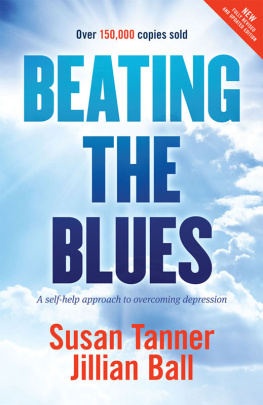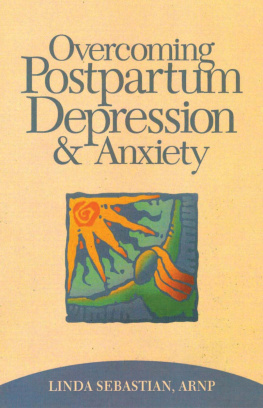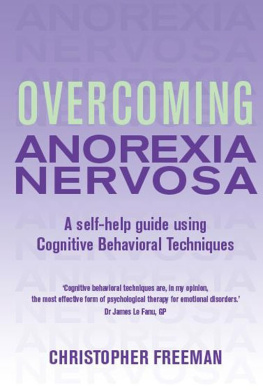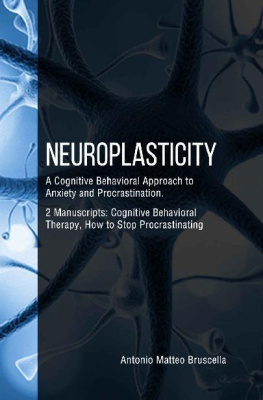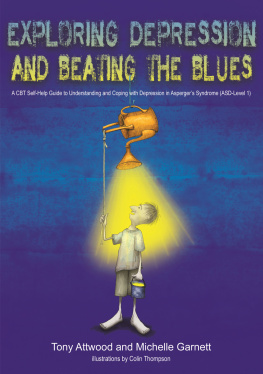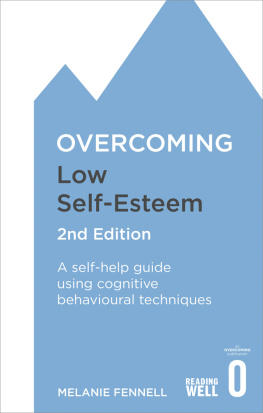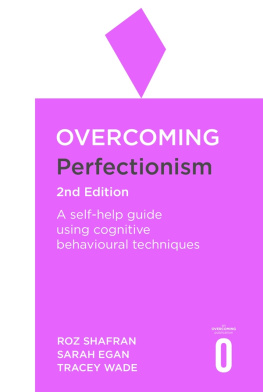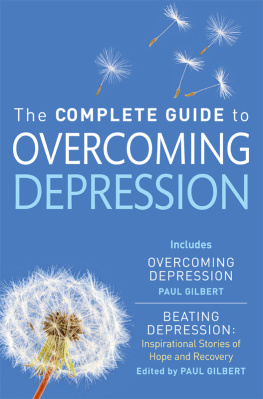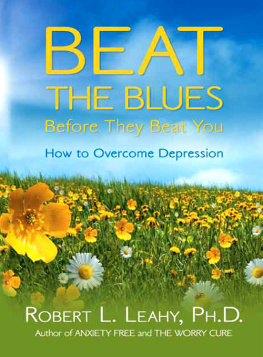Susan Tanner is a consultant psychologist and has specialised in the treatment of anxiety disorders and depression for over 25 years. She has created numerous treatment programmes for both inpatient and community settings as well as working as a consultant to private hospitals, corporations, businesses and government agencies. She has conducted research, been a clinical educator in the School of Psychiatry, UNSW, and has been an invited guest speaker at international conferences. She currently works in private practice in Sydney.
Dr Jillian Ball is a clinical psychologist who specialises in the treatment of depression, bipolar disorder, anxiety and eating disorders. Over several decades, she has worked as a conjoint senior lecturer and conducted clinical research at the School of Psychiatry, UNSW. She has published numerous articles and presented her research at international conferences. She is co-author of When Eating is Everything (1991) and Eating Disorders: A Guide for Family and Friends (1993). Jillian also has a private practice in Sydney.
Praise for Beating the Blues
Beating the Blues has become a classic self-help book for depression that resonates as much for this generation as it did 20 years ago. It is written with simplicity, humour and most of all credibility Its accessible, thoughtful and practical approach makes it my top recommendation for those grappling with the despair of depression.
Professor Philip Mitchell, Head, School of Psychiatry, UNSW, Sydney
For two decades, the accessibility, usefulness and clarity of Beating the Blues has maintained its position as one of the most widely used self-help treatment manuals in Australia. The extensive accumulated wisdom and creative clinical expertise of these authors in this area stands alone.
Chris Mackey, Principal Psychologist, Specialist Psychology Services, Geelong, Vic
Beating the Blues is a favourite clinical resource of mine and remains one of my most frequently recommended books to clients with depression. Its description of depression is helpful, accurate and unique in its simplicity and clients feel that it is highly relevant to them. It provides one of the best available explanations for clients on how to make cognitive therapy work for them. The rationale for other interventions is also clear, with practical suggestions.
Dr Chris Basten, Clinical Psychologist, Private Practice, Sydney
I sometimes wondered if I would ever escape from the dark cloud of depression; but then in Beating the Blues I found a way to understand depression and effective tools to develop a happier and more balanced life.
Christopher Barker (age 56)
Beating the Blues has made such a wonderful difference to my life.
Alonna (age 25)
Top 5 of the Bestseller Non-Fiction List
Complied by Independent Booksellers of Victoria
The Age, 19 June 1999
Beating the Blues is a perceptive and invaluable self-help approach to overcoming depression.
Daily News
Beating the Blues offers sound suggestions and confidence-boosting advice to allow depressed individuals to help themselves.
The Sydney Morning Herald
Beating the Blues has proven itself to be an invaluable source for general practitioners, psychiatrists and health workers. The feedback from patients is excellent.
Professor Kay Wilhelm, Modern Medicine of Australia, October 1991, p. 92
BEATING
THE
BLUES
A self-help approach to overcoming depression
Susan Tanner
Julian Ball
2012 EDITION
Dedicated to our clients who had the courage to share their suffering and create an opportunity to heal.
Published by Susan Tanner and Jillian Ball
First published in Australia and New Zealand in 1989
Reprinted 20 times
ISBN 9780646581620 (New Edition)
Copyright Susan Tanner and Jillian Ball 1991, 2012
All rights reserved. No part of this publication may be reproduced, stored in a retrieval system, transmitted in any form or by any means, electronic, mechanical, photocopying, recording or otherwise, without the prior written permission of the publisher.
National Library of Australia
Cataloguing-in-Publication entry
Tanner, Susan 1955
Beating the blues: a self-help approach to overcoming depression.
Bibliography.
Includes index.
1. Depression, MentalPopular works. I. Ball, Jillian. II. Kogler, Brian III. title.
616.8527
Cover design by Xou Creative
Typeset in Garamond by Xou Creative
Contents
Acknowledgements
The authors wish to thank Merry Pearson for her excellent, careful and thoughtful editing, we would not have achieved deadlines without you; Rod Morrison for his helpful advice in bringing the book into its printed form; David Henley and Jon MacDonald from Xou Creative for their professionalism and humour in typesetting and cover design; Rae Ball for her discerning editing and helpful suggestions; Michael Parle for his creative input to the mindful awareness chapter; Matthew Richards for his computer expertise; Dale Druckman for always being so enthusiastic about our book and all the team at NewSouth Books for their encouragement for our first attempts at self-publishing. Susan thanks her family for their patience and daughter for technical expertise and a special thanks to Elza Semsarian for all her effort with the infinite details. Jill wishes to thank her family for their patience and support with endless technology questions and unwavering interest in the progress of the book.
Beating the Blues is a joint effort. The order of authorship does not imply order of seniority or contribution.
Preface
Since its initial publication in 1989, Beating the Blues has remained in constant demand. Many people will experience significant if not disabling symptoms of depression at some time in their life. The value of Beating the Blues lies in its simplicity and its practical approach to help those people learn to overcome this distressing condition.
This updated edition of Beating the Blues remains an introduction to the highly effective treatment known as Cognitive Therapy. The book introduces you to the idea of considering the way you think and how this affects your mood and behaviour. It shows how to change ingrained thinking habits so you can feel better and live a more contented life.
Since the first edition, more knowledge has been gained about methods for managing our feelings. Ongoing research has shown how mindfulness (or mindful awareness) complements Cognitive Therapy. In this edition, we show how mindful awareness can be applied to feelings such as unhappiness and despair. Observing thoughts and feelings, rather than trying to fight them, helps to relinquish their control over you.
Psychologists have long considered that cognitive interventions, with or without the use of medication, lead to changes in neural pathways. Now, 20 years after our first edition, the medical technology has been developed to show that Cognitive Therapy does indeed produce physical changes in the brain. Cognitive Therapy enables you to rewire your brain! These changes in neural pathways are critical to relapse prevention.
The fundamental theory, structure and interventions of Cognitive Therapy have not substantially changed over the years; they have simply been added to and expanded as more experiential behaviour therapies have emerged. Similar to learning the basics of good driving skills, the cognitive skills in Beating the Blues will continue to protect you from unnecessary stress as you journey through life.
In this edition, we have expanded the basics and also included more recently established techniques. Our objective is to stay true to the books original purpose: as a simple and practical introduction to the very exciting and powerful treatment of Cognitive Therapy.
Next page
